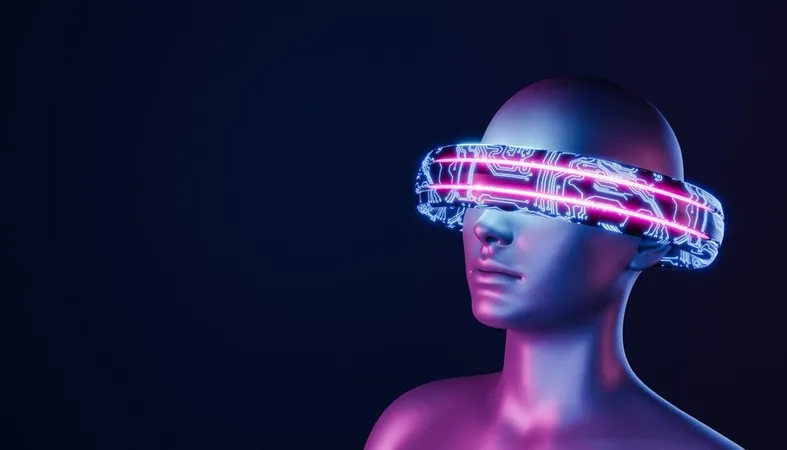
Revolutionizing Robot Training: Virtual Reality Takes Center Stage
2025-05-29
Author: Daniel
Pioneering VR Technology for Efficient Robot Training
Researchers at the University of Georgia have launched an innovative virtual reality (VR) platform designed to enhance the training process for workers engaged in robotic operations. As robots become increasingly prevalent in various industries, particularly recycling, this technology aims to streamline the learning curve and improve worker safety.
Why VR is a Game-Changer
With automation transforming tasks like disassembly in electronics recycling, workers face unique challenges. Unlike standard assembly processes, disassembly requires a nuanced approach. Beiwen Li, an associate professor and lead researcher, explains, “Simply reversing the assembly steps doesn’t suffice.” That's where VR Co-Lab comes into play, aiming to demystify the complexities of disassembly.
Virtual Training without the Risk
VR Co-Lab offers a hands-on digital training experience, allowing employees to practice disassembling a hard disk in a virtual environment. This simulated workstation mirrors actual job sites, complete with necessary tools and a robotic assistant. Participants engage in a carefully structured training program: while the robotic arm handles bulkier tasks, human trainees manage intricate actions, like unscrewing small bolts.
Real-Time Feedback for Enhanced Learning
The virtual program not only equips users for their tasks but also tracks their performance. Participants receive immediate feedback on their speed and accuracy, helping to shorten the typical lengthy training timeline. Li emphasizes the superiority of VR: “It’s much more engaging than sifting through endless pages of written instructions.”
Ensuring Safety and Efficiency in Robot Operations
Utilizing Meta Quest Pro technology, VR Co-Lab can monitor users’ upper body movements—enabling it to align the robotic arm’s actions with the trainee’s to prevent accidents. The system alerts users to potential hazards, ensuring a safe training environment while teaching how to navigate complex tasks.
Looking Ahead: Expanding VR Applications
Li and his research team are excited about future testing, aiming to adapt VR Co-Lab for a wider range of skill levels and tasks beyond hard disk disassembly. As robots become indispensable in sectors like recycling, the next stage of training innovation is essential to keep pace with technological advancements.
The Future is Robotic and Virtual
“Robots are set to play an essential role in the future of recycling,” says Li, highlighting its potential to alleviate labor shortages. The synergy between human and robot is vital, and this VR training system is a critical step forward in overcoming the complexities of disassembly processes.
With the project funded by the National Science Foundation and co-authored by experts from Iowa State University and Texas A&M University, the study marks a significant stride in equipping the workforce for a more automated tomorrow.

 Brasil (PT)
Brasil (PT)
 Canada (EN)
Canada (EN)
 Chile (ES)
Chile (ES)
 Česko (CS)
Česko (CS)
 대한민국 (KO)
대한민국 (KO)
 España (ES)
España (ES)
 France (FR)
France (FR)
 Hong Kong (EN)
Hong Kong (EN)
 Italia (IT)
Italia (IT)
 日本 (JA)
日本 (JA)
 Magyarország (HU)
Magyarország (HU)
 Norge (NO)
Norge (NO)
 Polska (PL)
Polska (PL)
 Schweiz (DE)
Schweiz (DE)
 Singapore (EN)
Singapore (EN)
 Sverige (SV)
Sverige (SV)
 Suomi (FI)
Suomi (FI)
 Türkiye (TR)
Türkiye (TR)
 الإمارات العربية المتحدة (AR)
الإمارات العربية المتحدة (AR)